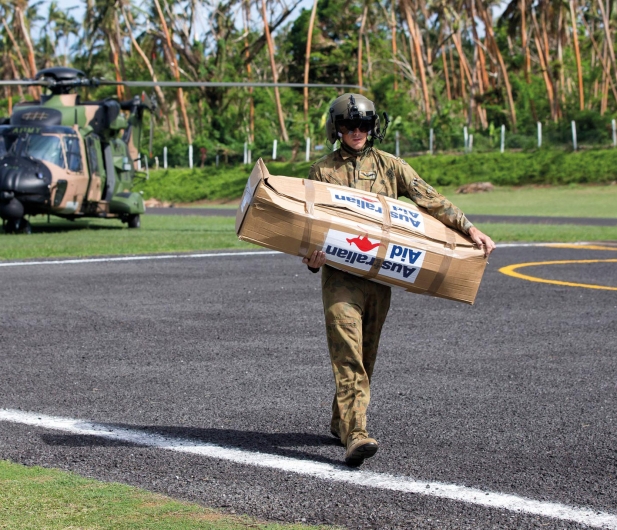Matthew Grigg is a senior research fellow at the Menzies School of Health Research and spent several years researching mosquitoes and malaria while living in a small town called Kudat in Sabah, Malaysia.
Matthew was used to remote living, having grown up on a wheat and sheep farm in Patchewollock, north-west Victoria. He studied medicine at the University of Melbourne before working as an Indigenous health clinician in remote Northern Territory communities, as well as Katherine and Darwin. Then he turned his attention to malaria in Malaysia for his PhD.

Matthew Grigg. Image credit: Nathan Fulton/DFAT
Through his research, Matthew hopes to contribute to eliminating the disease in countries like Malaysia, where there have been significant gains, but where ‘there's a number of major threats to reaching that goal’. These threats include resistance to drugs to prevent or cure malaria, called antimalarials, and resistance to the insecticides that are used to treat bed nets to prevent people being bitten by mosquitoes.
Matthew travelled ‘to all the villages where they had malaria cases’, often in remote forested areas or on remote islands off the coast. He describes it as an exciting time in a stunning place, with remote travel on traditional boats or ‘very wild four-wheel drive muddy trips’.
The more research you do, the more questions that are asked and the more interesting things you can really look at.
For the local communities, Matthew’s presence was a bit of a novelty at first, but because he was there for so long and learnt some language along the way, he was able to ‘have those deeper chats and share knowledge…breaking down some of those cultural barriers’. This proved useful for his research and for understanding 'all those sort of things about their daily lives that are also impacting on why people are getting malaria…'.
The Australian Government, through its new Health Security Initiative for the Indo–Pacific region, will support work like Matthew’s into the future. Recognising that containing infectious diseases in the region reduces Australia and our region’s risk, the initiative will promote global and regional cooperation and apply Australia’s unique strengths in health security.
Matthew adopted a ‘collaborative approach’, combining his skills and expertise and his Malaysian colleagues’ knowledge and deeper local understanding. He describes his best days in Sabah as ‘having really good outcomes and then being able…to say you've really changed and had an impact on not just the communities where you're working, but also more broadly in the region’.
Matthew sees that strengthening the public health system for surveillance is particularly important, as is ensuring that antimalarial drugs are being used and working effectively.
He is excited by what might come next. ‘The more research you do, the more questions that are asked and the more interesting things you can really look at…We’re actually now at the stage where we have done a lot of the heavy lifting and have built good relationships and have great locally-trained staff.’




